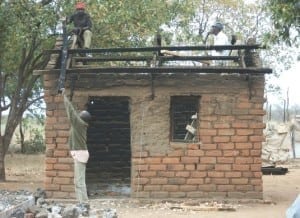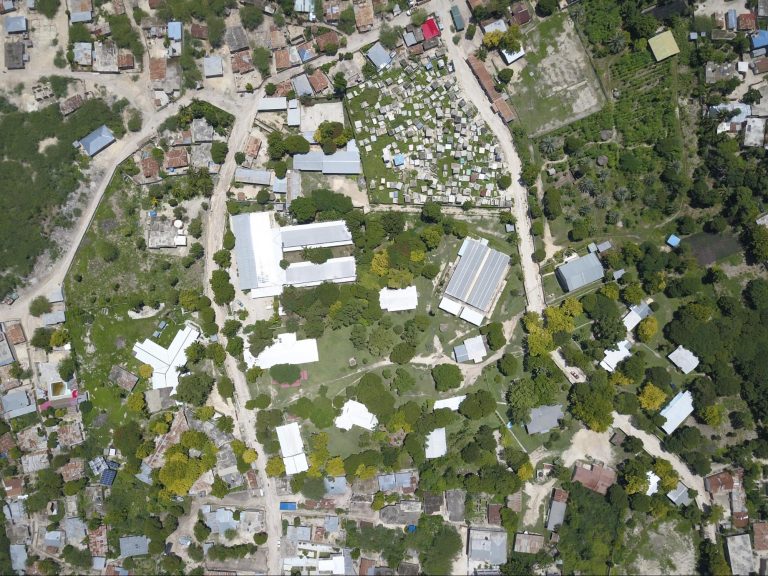
While working in low-resource regions around the world, I have received numerous proposals from communities in need. These proposals have ranged from educational needs, to environmental conservation, to general infrastructure projects. Some of them were well thought out, detailed, and make arguments for the proposed project. But others lacked the clarity needed to convince a potential donor or investor. Documents such as these need to answer “why” and “how” for an investor or development agency. Moreover, by answering these questions, the community gains an understanding of how much of their own time and expertise will be required to complete such a project.
One proposal for development work that I received in Nduti, Kenya, was one of these under-cooked documents. It started off as a story about a safari and a meal, with some non-descript details of a non-governmental organization; then it mentioned water, an assessment report, an existing borehole and the need for a polytechnic, and it concluded with costs for an electric pump. The writer clearly indicated that there was a need and a story to tell with lots of relevant information. Unfortunately, it was disorganized and left me to guess as to what exactly they wanted.
I returned to Nduti to meet with the community to clarify what, exactly, they were requesting. They showed me a broken-down well and hand pump that had been provided by Impact East Africa in 2003. It had broken some years earlier, but the organization had left without training the community in how to fix it. The first couple of times the pump broke, the community pooled their money together to pay a professional from a nearby town to come fix it. The pump began to break so often, though, that fixing it was not financially viable. Clearly, the community needed a new pump. They also spoke of a plan to irrigate nearby public land. NGOs had given them seeds for moringa, watermelon, tomatoes, peppers and other fruits when the pump was working. Once the pump broke however, the crops could not be irrigated and would fail. They then discussed ideas about leasing the irrigated land to nearby families. They had some great ideas – ideas that would really bring the community forward. They just needed to get them onto paper.
I handed them an outline of questions that I wanted them to consider. I provide the outline below. It could be applied to any of the proposals that I have received. Answering the following questions should help communities and potential investors understand the work that lies ahead.
Introduction
- Name of proposal
- Estimated total cost
- Name of community organization
- Name of author and postion in organization
Description of Organization
- How many board members?
- What are the goals of the organization?
Location and climate
- Current condition of the community
- Population Industries
- Problems (Health? Employment? Education?)
Previous Donors and Activities
- What did they do?
- How did their projects help?
- How did they not help?
- Were any reports produced? Please attach.
This kind of Information is uncommon in proposals from developing communities. However, such documentation is needed. It is often the case that charitable organizations have undertaken projects previously. Some projects worked well, others have failed. Knowledge of these histories would help potential investors understand the complications. Also, the community will need to reflect upon their recent history and ask, “Is this what we really want?”
What is left to do? What problems remain?
This will clarify that while assistance from one group or another may have helped, the major issues are still unsolved. It will also transition into a discussion of solutions.
What are some solutions?
- Which one (or two) are the most important and will have the most positive impact on the community?
- Why?
When communities provide a series of possible solutions and identify the best, the investor can catch a glimpse of their thought process. This also allows a development professional to consider possible alternatives.
What is involved with the solution?
- Where is the proposed location?
- How much will materials cost?
- How much will labor cost?
- Will the community be willing to volunteer their labor? Why or why not?
Often engineers, educators and health professionals are in short supply in a developing community. Therefore, these questions are difficult for them to answer. Providing any relevant information, though, will assist the investor in substantiating costs. It will also show the community’s dedication to helping the project succeed.
After the project is complete, and the donor has left, what organizational structure will be put in place to ensure the continued viability of the project?
- How will the community pay for maintenance of the project?
- Will rent, fees or insurance be paid by the residents?
- Who will be overseeing the operation?
- How will corruption be prevented?
- How will this project open doors for the community to solve its other problems on its own?
This is the most difficult part of this proposal. It not only asks for financial considerations from the community, but insists that the community understand that this project will be theirs. And if they are willing to work to build it, they must be willing to prepare and to work to maintain it.
Conclusion
- How will this project solve the problem? (Restate “why” in #6)
- How much will it cost? (restate, summarize #7)
- Thank you, contact information
While the first two items may seem redundant, proposals must be written for both the investor that reads through the document chronologically, line by line, as well as for the donor who may skip to the end before reading; asking “Okay, what and how much?”


I COME Papua new guinea, one of the developing countries.
I need lots to do in my community but how do i get the information.
Thanks paul Yakira
iam a papua new guinean and work as a school teacher. iam thinking of helping rural communities to build school infrastructure so children can enjoy the same previllege as children in urban areas enjoy. please i need helping information on how to write community project proposal for financial assistance from donor agencies.
I’m a health worker in dearly need to help my community get clean safe water so I need informatiom on how to write a development project proposal. thanks
I need more info about working in our community, this was helpful but writing it to satisfaction needs your help
Thank you
I AM IN GHANA AND I HAVE THOUGHT OF HELPING MOST OF THE RURAL COMMUNITIES IN IT TRAINING. PLEASE CAN YOU GUIDE ME ON HOW TO DRAFT A PROPOSAL TO THE REGIONAL MINISTER AND OTHER ABOVE AUTHORITIES.
THANK YOU
Hi, i want to write proposal of building community hall to the investor.
Can u please assist me with how to write it, Coz i really want to impress investors
i d love to hear about your proposals for your community. am also planning the same for my country kenya. 🙂
sample of project proposal for development work in communnity
This can make a differant to some one whos cluless like me but an example would make it more cleare.
I am nicholas chw I need to write aproposal to our MP to built us an office in an hospital we are atouched to.please help.
Am Polly from Uganda. I love to conserve by mobilizing and training people living around our national parks in art and craft. As an artist and a service provider in these parks, I have proved that poaching is rampant. How can I help my country.
This is what all grassroots organisations need.It answers all the questions asked by donors during their monitoring visits to communities.
Thank you.
Hi, i am Juma Benjamin from south sudan, i wuld like your help on how i can generate community development project that would target the youths by empowering them in skills and sustainability that can stop their mind set from arms and cattle raiding activities, thanks.
thank you so much..so helpful!
This is one of our assignment for the ED 192 ,that we should write one of the project proposal based on one of the specific needs of school community. So I need alot to do but how could I get my information..
Thank you for the piece of information on how to write better during proposal writing.
I need more news feeds on this area.
Best Regards,
Hi, u am Saidu OSMAN Conteh fringe Sierra Leone. I would really want to help me write a project proposal for a school toilet facility
The content is good and useful.Requestion for sample drafts that can ive a guide to come up with a proposal.
Thanks Susan – Uganda f
Hi all,
Anybody to help me, i would like to write a proposal on changing old windows to a new ones to an organization.
thanks
Plz forward to me
I like to reconstruct our regular kitchen into the modular kitchen we face them so many problems can you help me from where do I have to start and who will go to help me? I hope I will get a response from you.